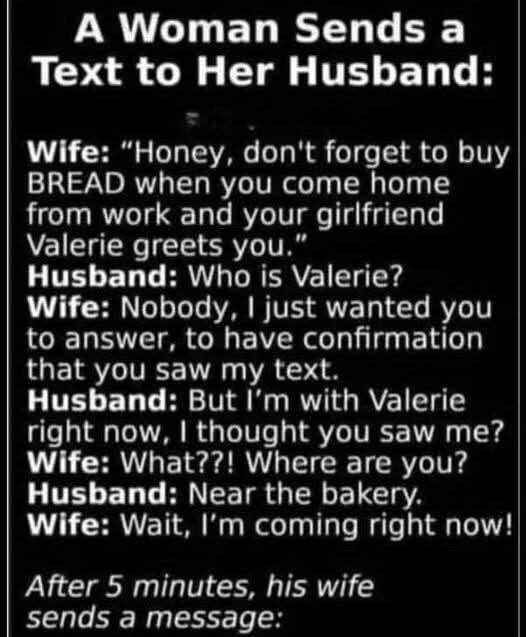It started as any other quiet afternoon. Amelia was on the couch, folding laundry, scrolling her phone, half-listening to a podcast. Her husband, Mark, had left work an hour earlier to grab a loaf of bread—a simple errand he’d done countless times. After fifteen minutes with no reply, Amelia grinned. Mark was slow to check his phone, so she decided to tease him.
She texted: “Are you with Valerie again?” Valerie wasn’t real—a running joke from a past mix-up. His reply came almost instantly: “Yep. With Valerie. We’re just near your favorite bakery.” Amelia froze. The bakery? That wasn’t random. Her heart raced. Was he joking—or not? She grabbed her coat, jumped in the car, and drove across town, imagining the worst.
When she arrived, she saw nothing unusual. No Mark, no “Valerie,” just regular customers enjoying pastries. Confused and embarrassed, she texted again: “Where are you?” “At work. Why?” came the reply. Her face burned as she read his next message: “I was just joking! Since you’re already there, might as well grab the bread.”
Amelia laughed so hard she cried. People in the bakery stared as relief and embarrassment collided. She texted back: “You. Are. The. Worst.” Back home, Mark was waiting, grinning. “So… how’s Valerie?” he teased. Amelia shook her head, laughing, and swatted his arm. “You’re impossible.” That day became an inside joke, a reminder that love thrives on playfulness, forgiveness, and humor. It wasn’t really about bread or a fake girlfriend—it was about how quickly we let fear twist reality, and how a good laugh can untangle the mess before it grows. Years later, the story resurfaced at dinners and anniversaries, retold with laughter, always reminding them that love doesn’t need to be perfect—it just needs honesty, patience, and a
